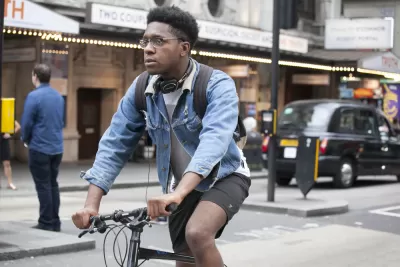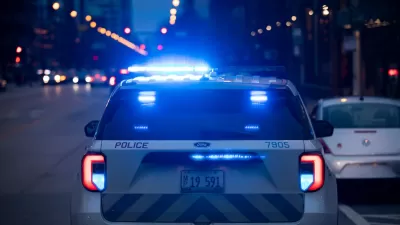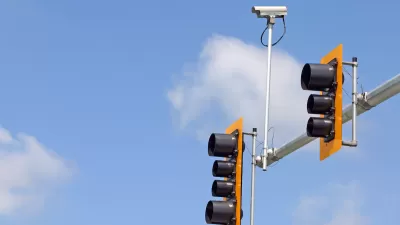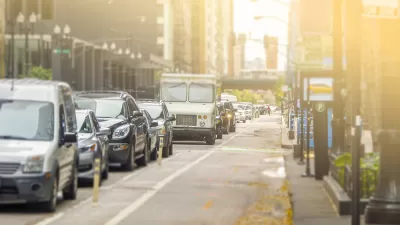Majority-white neighborhoods like West Town and Lincoln Park are among the most popular for biking in Chicago, but they’re not in the top ten neighborhoods for bike tickets.

Chicago's far West Side neighborhood isn't known for biking, but this majority African-American neighborhood is #1 for bike tickets. According to reporting from Mary Wisniewski in the Chicago Tribune, "[t]he top 10 community areas for bike tickets from 2008 to Sept. 22, 2016, include seven that are majority African-American and three that are majority Latino." These citations, which are intended to serve public safety, have provoked a response from some in the city. "Bike advocates and an elected official expressed concern that police may be unfairly targeting cyclists in black communities while going easier on law-breaking cyclists in white areas," Wisniewski reports.
Some see the citation as a result of infrastructure rather than discrimination. "African-American bike advocates say the higher number of tickets in some South and West side areas could be caused in part by the lack of bike infrastructure like protected bike lanes, leading cyclists to take to the sidewalk to avoid traffic on busy streets," adds Wisniewski. Whatever the cause, the discrepancy is striking. As a bike commuter who has ridden through Austin many times, I can confirm that the streets aren't packed with cyclists.
The news joins a series revelations about the racial disparities of transportation modes. In February, Joe Cortright discussed data that show Black Americans are more likely to get pulled over for routine traffic infractions. They are also less likely to get picked up by a ride-hailing company. Finally, NPR also covered the racial disparity in pedestrian fatalities among Black Americans compared to the rest of the population.
FULL STORY: 'Biking while black': Chicago minority areas see the most bike tickets

Maui's Vacation Rental Debate Turns Ugly
Verbal attacks, misinformation campaigns and fistfights plague a high-stakes debate to convert thousands of vacation rentals into long-term housing.

Planetizen Federal Action Tracker
A weekly monitor of how Trump’s orders and actions are impacting planners and planning in America.

San Francisco Suspends Traffic Calming Amidst Record Deaths
Citing “a challenging fiscal landscape,” the city will cease the program on the heels of 42 traffic deaths, including 24 pedestrians.

Defunct Pittsburgh Power Plant to Become Residential Tower
A decommissioned steam heat plant will be redeveloped into almost 100 affordable housing units.

Trump Prompts Restructuring of Transportation Research Board in “Unprecedented Overreach”
The TRB has eliminated more than half of its committees including those focused on climate, equity, and cities.

Amtrak Rolls Out New Orleans to Alabama “Mardi Gras” Train
The new service will operate morning and evening departures between Mobile and New Orleans.
Urban Design for Planners 1: Software Tools
This six-course series explores essential urban design concepts using open source software and equips planners with the tools they need to participate fully in the urban design process.
Planning for Universal Design
Learn the tools for implementing Universal Design in planning regulations.
Heyer Gruel & Associates PA
JM Goldson LLC
Custer County Colorado
City of Camden Redevelopment Agency
City of Astoria
Transportation Research & Education Center (TREC) at Portland State University
Jefferson Parish Government
Camden Redevelopment Agency
City of Claremont





























